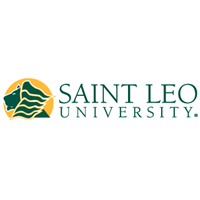Below is a summary of the abstract you submitted. Presenting author(s) is shown in bold.
If any changes need to be made, you can modify the abstract or change the authors.
You can also download a .docx version of this abstract.
If there are any problems, please email Dan at dar78@pitt.edu and he'll take care of them!
This abstract was last modified on March 15, 2022 at 5:34 p.m..

Eight students are the first ever participants of the new SEA-GENES program offered at Saint Leo University. Being part of Cohort III, has allowed these eight students to be part of authentic research that can possibly help to assign gene functions and to open doors to future projects. With the SEA-PHAGES program, many phages have been found; however, over 70% of the genes have no assigned function. This is exactly why the SEA-GENES program was created. Saint Leo University’s project for HHMI SEA-GENES is to begin the process of assisting in the assigning of functions to the Actinobacteriophage TootsiePop that was isolated from Mycobacterium smegmatis. TootsiePop was discovered in Charlton, MA in 2016 by Worcester Polytechnic Institute and was sequenced in February of 2017. Being a cluster F (subcluster F1) Mycobacterium phage within the Siphoviridae morphotype, it forms lysogens. TootsiePop is a temperate phage, its genome consists of 93 genes, of which 62 have not currently been assigned a function. The eight students have already cloned and inserted almost half the genome into the pExTra plasmid, and these were then electroporated into M. smegmatis. To determine the functions of the genes, cytotoxicity tests were performed to see if the genes had a negative effect on the bacteria. Future work involves finishing the cytotoxicity tests on M. smegmatis followed by defense assays and further cloning prior to 2-hybrid interaction assays.

